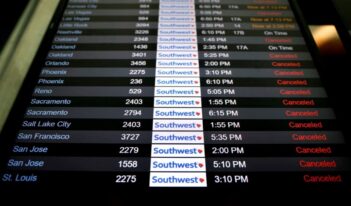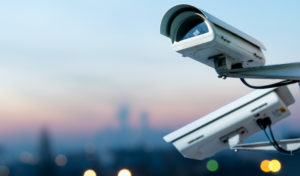
Proposed bill would limit the use of drones for surveillance.
Since the passage of the Federal Aviation Administration Modernization and Reform Act of 2012 (FMRA), which facilitates the integration of unmanned aerial aircraft into American airspace, government watchdogs have voiced concerns about whether the use of these aircraft by police for surveillance purposes violates the due process rights of U.S. citizens.
Recently proposed legislation in Congress suggests that lawmakers are considering the potential Constitutional implications of this integration—particularly in the context of law enforcement surveillance.
Representatives Zoe Lofgren (D-CA) and Ted Poe (R-TX) have introduced the Preserving American Privacy Act, which aims to protect citizens in several ways from potential due process violations resulting from law enforcement’s possible use of unmanned aerial drones.
First, the Act would require any government entity employing an unmanned aerial system (UAS) to submit to the United States Attorney General information about whether the UAS can collect “covered information.” The bill defines covered information as information that is reasonably likely to enable identification of an individual or information about an individual’s property that is not in plain view. The bill would also require government entities to submit information about the policies they have enacted that ensure the collection of covered information relates to criminal investigations only.
Second, the proposed legislation would generally prohibit the use of covered information as evidence in a trial or judicial proceeding, with two notable exceptions: when the information is collected pursuant to a warrant that is provided to each person from whom covered information is collected; and when the information is collected pursuant to a court order showing both a reasonable suspicion of criminal activity and a reasonable probability that the operation of the UAS will provide evidence of the activity.
Third, if a court or appropriate agency determines that a governmental entity has breached any provision of the Act, the court or agency would be required to initiate disciplinary proceedings against the responsible individual. For example, the willful disclosure of some covered information would be a violation of the Act.
In addition to instituting a baseline of federal privacy protections, the Act would allow states to pass further regulations. The Act contains an express provision stating that it should not “be construed to preempt any State law regarding the use of unmanned aircraft systems exclusively within the borders of that State.”
Although the Preserving American Privacy Act is one of the few federal bills to address privacy concerns about the deployment of unmanned aerial systems, it is part of a larger response to the federal government’s decision to integrate drones into U.S. airspace. A number of states are considering their own legislation to limit how drones can be used for law enforcement purposes within their border. For example, Virginia legislators recently proposed a bill that would create a two-year moratorium on police use of unmanned aircraft. Likewise, Oregon is considering a bill setting out licensing requirements for drone use and limitations on how evidence collected from drones could be used in court. Other states considering similar measures include Florida, South Carolina, and Missouri.
Non-governmental organizations have also entered the discussion. For example, the Electronic Privacy Information Center (EPIC) has petitioned the FAA to permit public comment on rulemaking related to drones and privacy concerns.
While it is unclear whether Congress will pass the Preserving American Privacy Act, the Act represents another attempt, and one of the first federal legislative efforts, to respond to the increasing use of drones in domestic airspace for law enforcement surveillance purposes.



